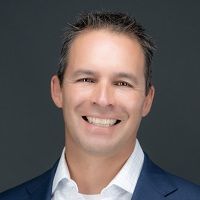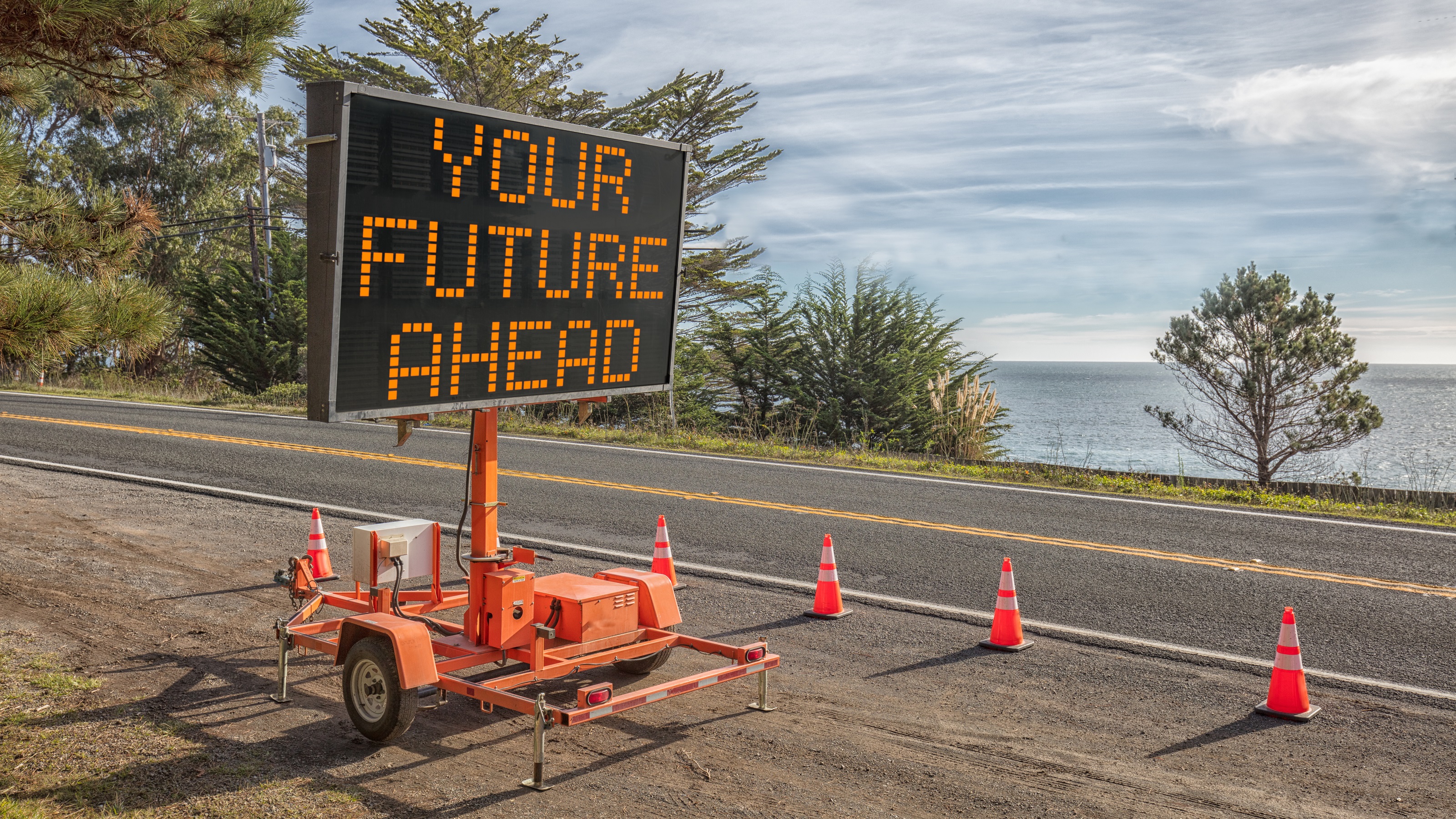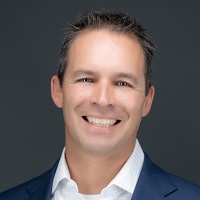Beware the Retirement Hazard Zone: Those Years Right After Age 59½
The decisions you make in the four to five years right after you hit that pivotal age can have a big impact on the rest of your retirement.


Profit and prosper with the best of Kiplinger's advice on investing, taxes, retirement, personal finance and much more. Delivered daily. Enter your email in the box and click Sign Me Up.
You are now subscribed
Your newsletter sign-up was successful
Want to add more newsletters?

Delivered daily
Kiplinger Today
Profit and prosper with the best of Kiplinger's advice on investing, taxes, retirement, personal finance and much more delivered daily. Smart money moves start here.

Sent five days a week
Kiplinger A Step Ahead
Get practical help to make better financial decisions in your everyday life, from spending to savings on top deals.

Delivered daily
Kiplinger Closing Bell
Get today's biggest financial and investing headlines delivered to your inbox every day the U.S. stock market is open.

Sent twice a week
Kiplinger Adviser Intel
Financial pros across the country share best practices and fresh tactics to preserve and grow your wealth.

Delivered weekly
Kiplinger Tax Tips
Trim your federal and state tax bills with practical tax-planning and tax-cutting strategies.

Sent twice a week
Kiplinger Retirement Tips
Your twice-a-week guide to planning and enjoying a financially secure and richly rewarding retirement

Sent bimonthly.
Kiplinger Adviser Angle
Insights for advisers, wealth managers and other financial professionals.

Sent twice a week
Kiplinger Investing Weekly
Your twice-a-week roundup of promising stocks, funds, companies and industries you should consider, ones you should avoid, and why.

Sent weekly for six weeks
Kiplinger Invest for Retirement
Your step-by-step six-part series on how to invest for retirement, from devising a successful strategy to exactly which investments to choose.
Your life can break down into three phases when it comes to your retirement journey.
The first is your accumulation phase when you save money into your savings accounts, IRAs and 401(k)s.
The second is when you turn 59½, the age you can start withdrawing from 401(k)s and IRAs, something I call the retirement hazard zone, which lasts four to five years into your retirement.
From just $107.88 $24.99 for Kiplinger Personal Finance
Become a smarter, better informed investor. Subscribe from just $107.88 $24.99, plus get up to 4 Special Issues

Sign up for Kiplinger’s Free Newsletters
Profit and prosper with the best of expert advice on investing, taxes, retirement, personal finance and more - straight to your e-mail.
Profit and prosper with the best of expert advice - straight to your e-mail.
The third phase is your income distribution phase as you spend down your assets and enjoy retirement, but the outcome of those four to five years in the retirement hazard zone can significantly impact that third phase.
What is so hazardous about this zone?
Most people don’t wake up one day to their alarm clock saying, “Good morning, welcome to the retirement hazard zone!” If that were the case, you would be alerted to the monumental change looming in your financial situation, letting you know that your money decisions matter more during this time.
But the truth is, most people miss it. Because there are no alarms or timers, many people continue to position their money in the same strategies they have always used, regardless of their retirement timeline. Unfortunately, that can have devastating consequences. That’s why the period after 59½ can be considered the retirement hazard zone — a time for cautious decisions and pivotal action to secure the rest of your financial future and retirement.
For many people, this time is the peak of your financial curve when you are going to have the most money you've ever had... but timing is crucial. With more money comes the risk of losing more. Losing a sizable portion of your nest egg due to a stock market crash any time in the hazard zone can have devastating effects on the rest of your life that you may never be able to recover from.
Remember 2008 when you had friends who were getting awfully close to retirement, and they lost 50% of their life savings? Their 401(k)s turned into 201(k)s! It threw them into complete uncertainty. People had no idea when they could retire, no idea how much their accounts would be worth, no idea how much income their nest egg would produce, and no idea how long it would last.
In addition, they may have been forced to work longer or lower their lifestyle standards because they were laid off from their jobs and forced into early retirement. Could you imagine being a couple of years into retirement, spending from your nest egg only to see a significant stock market crash?
Another reason this period is so hazardous is that if you continue the same level of spending you started with early in retirement through a downturn or recession, you run into something called the sequence of returns risk. This is where a negative return early in retirement could devastate your portfolio as you continue to spend, locking in losses, leaving less left to grow back from the downturn and using high-fee instruments like mutual funds and variable annuities. All these problems compound to leave you running out of money before you run out of life.
This is why the retirement hazard zone is so important and why this period starts exactly at the time you can start withdrawing from your investment accounts – 59½. Because this is when your retirement accounts open for withdrawal, it is quite easy to know when you’re in this zone... In fact, you can set your alarm for your 59½ birthday just as an extra reminder!
Either way, this period is a time to take specific action and lay down the cornerstone of your retirement income plan, which can make all the difference in the quality of retirement and lifestyle for years to come.
The transition from asset growth to income and protection
A couple of mindset shifts are crucial when turning 59½ and throughout the retirement hazard zone. In the accumulation phase, you focused mostly on saving money, growing it, and chasing a healthy return on investment. However, once you are in the retirement hazard zone, the protection of your life savings becomes your primary goal.
Mature investors realize, and may painfully remember, that you can lose money a whole lot faster than you can re-earn it and re-save it. Shifting to a more protective mindset does not mean you give up growth, but it means you strategically avoid losing 30%, 40%, or 50% of your portfolio in a brief period. You must take action to adjust your portfolio and investment vehicles to protect your nest egg from significant losses while still growing it.
The second most important mindset shift is going from growth to income projection. It is now time to stop looking at your nest egg as a substantial number and start asking how much money it will produce the day you leave your job. Will your nest egg be able to produce the income you need? For how long?
Not only is this a shift in your financial strategy, but it's a major mindset shift, and most investors do not know how to make the transition.
The first step to navigating the retirement hazard zone
As soon as you turn 59½, you can take money out of your retirement accounts without paying any penalties. More important, it is the first time that you can move your current 401(k) into something called an in-service withdrawal or an in-service rollover without any tax consequence. You can keep your current 401(k) active and in service, while still contributing to it and receiving the employer match. This can be a strategic move for thoughtful investors who wish to gain the best of the 401(k) while adjusting their investments to better protect them through the retirement hazard zone.
Most 401(k)s are limited in their investment options, laden with additional fees and have very few options for downside protection. When you roll your 401(k) over to an IRA of your choice, you become open to more options to protect your nest egg and generate the income you will have in retirement. Essentially, you can break your 401(k) free from being held hostage by your company's plan and position it as a cornerstone of your income and retirement future.
The comprehensive retirement income plan
When looking at a 401(k) rollover, it is important to seek a fiduciary wealth manager skilled specifically in financial planning for the second half of life, or the retirement, protection, and income stage of life.
Most financial advisers are trained in financial planning for the first half of life or the accumulation phase, where they assess your risk tolerance and put your money into an appropriate risk-adjusted pie chart. This phase of life is not too complex. The second half of life, however, requires specific training. A good financial adviser will be able to help you answer these important questions about how to thrive to and through the retirement phase of your life:
- Have or will I have saved enough?
- Will my money last in retirement?
- Is my family accounted for in my plan?
When you know the answers to these questions, something pivotal changes in your outlook on the future. Yet, it’s amazing how few people know their answers to these questions even though they have been working hard to save for this period throughout their lives. These are the questions that should be answered during the retirement hazard zone.
Imagine the peace of mind that you will have, knowing your financial plan is not left to stock market uncertainty and is instead built to generate and protect the income you need to live your life. And imagine the feeling when you can answer these three questions confidently.
When you’ve reached that point, you’re on your way to protecting your finances through the retirement hazard zone, setting yourself up for the comfortable retirement you worked so hard to save for.
Profit and prosper with the best of Kiplinger's advice on investing, taxes, retirement, personal finance and much more. Delivered daily. Enter your email in the box and click Sign Me Up.

Based in beautiful Colorado Springs, Colorado, Chris is one of the owners who helped launch Accelerated Wealth, LLC, a nationwide wealth strategy firm, and is one of the original creators of the Accelerated Wealth Five Basket Strategy™. Chris is a featured editorial contributor to FoxBusiness.com. He has a Bachelor of Business Administration (BBA) from the University of New Mexico, Anderson Schools of Management, and his Master of Business Administration (MBA) degree from the University of Texas, Tyler Branch. Chris has co-hosted a popular radio show called The Smartest Retirement Show and currently co-hosts the Accelerated Wealth Radio Show, which broadcasts on the largest talk radio station in Colorado Springs. Chris has also been published and featured on FoxBusiness.com.
-
 The New Reality for Entertainment
The New Reality for EntertainmentThe Kiplinger Letter The entertainment industry is shifting as movie and TV companies face fierce competition, fight for attention and cope with artificial intelligence.
-
 Stocks Sink With Alphabet, Bitcoin: Stock Market Today
Stocks Sink With Alphabet, Bitcoin: Stock Market TodayA dismal round of jobs data did little to lift sentiment on Thursday.
-
 Betting on Super Bowl 2026? New IRS Tax Changes Could Cost You
Betting on Super Bowl 2026? New IRS Tax Changes Could Cost YouTaxable Income When Super Bowl LX hype fades, some fans may be surprised to learn that sports betting tax rules have shifted.
-
 The 4 Estate Planning Documents Every High-Net-Worth Family Needs (Not Just a Will)
The 4 Estate Planning Documents Every High-Net-Worth Family Needs (Not Just a Will)The key to successful estate planning for HNW families isn't just drafting these four documents, but ensuring they're current and immediately accessible.
-
 Love and Legacy: What Couples Rarely Talk About (But Should)
Love and Legacy: What Couples Rarely Talk About (But Should)Couples who talk openly about finances, including estate planning, are more likely to head into retirement joyfully. How can you get the conversation going?
-
 How to Get the Fair Value for Your Shares When You Are in the Minority Vote on a Sale of Substantially All Corporate Assets
How to Get the Fair Value for Your Shares When You Are in the Minority Vote on a Sale of Substantially All Corporate AssetsWhen a sale of substantially all corporate assets is approved by majority vote, shareholders on the losing side of the vote should understand their rights.
-
 How to Add a Pet Trust to Your Estate Plan: Don't Leave Your Best Friend to Chance
How to Add a Pet Trust to Your Estate Plan: Don't Leave Your Best Friend to ChanceAdding a pet trust to your estate plan can ensure your pets are properly looked after when you're no longer able to care for them. This is how to go about it.
-
 Want to Avoid Leaving Chaos in Your Wake? Don't Leave Behind an Outdated Estate Plan
Want to Avoid Leaving Chaos in Your Wake? Don't Leave Behind an Outdated Estate PlanAn outdated or incomplete estate plan could cause confusion for those handling your affairs at a difficult time. This guide highlights what to update and when.
-
 I'm a Financial Adviser: This Is Why I Became an Advocate for Fee-Only Financial Advice
I'm a Financial Adviser: This Is Why I Became an Advocate for Fee-Only Financial AdviceCan financial advisers who earn commissions on product sales give clients the best advice? For one professional, changing track was the clear choice.
-
 I Met With 100-Plus Advisers to Develop This Road Map for Adopting AI
I Met With 100-Plus Advisers to Develop This Road Map for Adopting AIFor financial advisers eager to embrace AI but unsure where to start, this road map will help you integrate the right tools and safeguards into your work.
-
 The Referral Revolution: How to Grow Your Business With Trust
The Referral Revolution: How to Grow Your Business With TrustYou can attract ideal clients by focusing on value and leveraging your current relationships to create a referral-based practice.